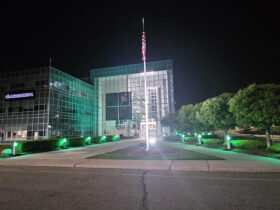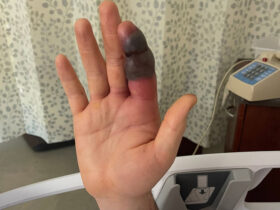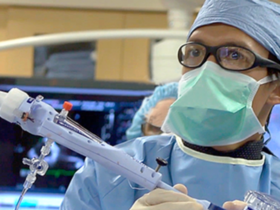With a sudden surge of COVID-19 cases erupting the nation, cities and states are taking precautionary measures to combat this increasingly threatening pandemic. As of Wednesday afternoon, the New Jersey COVID-19 Information Hub reported 3,078 new positive cases with 263,495 cumulative total cases and 15 new confirmed deaths with 14,676 total deaths. In order to beat a possible second wave, New Jersey Governor Phil Murphy has announced restrictions on indoor gatherings and sports participation through Executive Order No. 194.
Governor Murphy’s order includes restrictions on time and seating for restaurants, bars, clubs, lounges and casinos and also the prohibition of all interstate indoor sports up to and including high school levels. Specifically, all businesses that serve food or beverages must close their indoor premises between 10:00 p.m. and 5:00 a.m. Casinos, however, will be able to deliver room service to guest rooms and takeout. Outdoor dining will be permitted. Indoor areas of bars and restaurants will be fully prohibited, but restaurants may place tables closer than six feet only if they are separated by barriers that comply with supervision from the Department of Health. For additional outdoor dining space, restaurants will be allowed to use plastic domes with a one group limit. Regarding sports, interstate games and tournaments of K-12 and youth participation will be prohibited, but collegiate and professional sports will continue.
Local businesses react
While some eateries are not too concerned about the time restrictions, as customers will usually finish eating before 10:00 p.m., local restaurants are troubled by the ban at the bar. Glenn Kuhl, a co-owner of Kuhl’s Tavern in Bayonne, voiced his worries on the Jersey Journal, “That’s going to take a toll on us.” With no outdoor seating and a small indoor space, Kuhl’s Tavern will face a significant loss in capacity, thus negatively impacting business.
Other managers and owners acknowledge the upcoming holidays as a time for booming business, but the restrictions will likely change one of the busiest times of the year for bars. While these workers understand the necessity for precautionary measures, they are anxious about the future of state and local economies. After all, if cases continue to surge, New Jersey could face harsher state-wide bans like it did this past Spring during the first wave.
General manager Vince Crysler at Pilsener Haus & Biergarten also spoke out on the Jersey Journal regarding the altered schedule. He believes that the shorter hours may generate larger crowds because more people will go to restaurants at the same time, therefore creating further safety hazards. Additionally, Crysler recognized the uncertainty among his workers. He stated that his business is not projecting any staff cuts, as the restrictions require “just spreading less money around to the same amount of people.”
Contrasting opinions
Governor Murphy’s mandate has fueled debate among various areas of the state. Take, for instance, Jersey City Mayor Steve Fulop’s disapproval of the restrictions. He took to Twitter on Monday to argue that the increase in cases has not correlated with an increase in hospitalizations. He wrote, “…it isn’t like Covid only comes out at night.”
While he has stated that Jersey City will follow Murphy’s order, Fulop has been vocal about keeping his city open.
However, in contrast, other cities around New Jersey have already taken steps to place further restrictions. In Newark, Mayor Ras J. Baraka announced a mandatory curfew for some areas. On Tuesday, Baraka declared that those who live in three Newark hot spot zip codes, 07104, 07105 and 07107, will not be allowed out past 9:00 p.m. on weekdays and 10 p.m. on weekends unless traveling to or from work or if there is an emergency until at least December 1st. With Newark’s test positivity rate at 19%, more than double the state’s rate of 7.74%, Baraka has placed strict limits on all kinds of gatherings, including sports, senior housing, religious services, restaurants, businesses and offices.
Conclusion
The United States has faced an alarming average of 123,315 cases per day over the past week. And, with global cases climbing, countries such as France and Germany are implementing strict restrictions and lockdowns to curb the already prevalent second wave. Officials in New Jersey are responding quickly, but the effects on local businesses are evident. As early data from the COVID-19 vaccine from Pfizer and BioNTech exhibit effectiveness, we can only hope that our neighborhoods, our country and the world will fight and recover as efficiently as possible.













